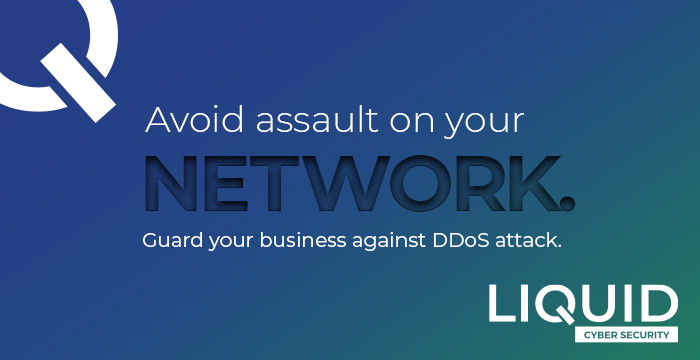Banks worldwide are exploring new technologies and business models that can help them compete in the digital age. From robo advisors and open APIs to blockchain technology, we take a look at five innovations transforming the banking sector.
- Blockchain
 Blockchain is the lesser known shared database technology behind the popular digital currency Bitcoin.In a nutshell, blockchain works by using a network of computers, all of which must approve a transaction in a chain of computer code. Details of the transfer are then recorded on a public ledger for anyone on the network to see.It has huge potential for banking, where it could be used to improve the security of financial transactions, decentralise services and improve speed to market for new products.There is no shortage of use-cases and applications for blockchain currently being explored by the finance community. It can be used to securely store client identities or handle cross-border payments. It could even lead to ‘smart contracts’ that complete trades and deals automatically.What’s more is a report from Santander InnoVentures suggests that blockchain technologies could save banks as much as $20 billion in infrastructure costs by 2022.
Blockchain is the lesser known shared database technology behind the popular digital currency Bitcoin.In a nutshell, blockchain works by using a network of computers, all of which must approve a transaction in a chain of computer code. Details of the transfer are then recorded on a public ledger for anyone on the network to see.It has huge potential for banking, where it could be used to improve the security of financial transactions, decentralise services and improve speed to market for new products.There is no shortage of use-cases and applications for blockchain currently being explored by the finance community. It can be used to securely store client identities or handle cross-border payments. It could even lead to ‘smart contracts’ that complete trades and deals automatically.What’s more is a report from Santander InnoVentures suggests that blockchain technologies could save banks as much as $20 billion in infrastructure costs by 2022.
- Robo advisors
 How long until customers expect all their financial advice to come not from their account manager, but a robo advisor? Although they won’t invite you to step into their office for a cup of tea, robo advisors are quick, efficient and cheap – and automated investment services are on the rise globally.Bank of America Merrill Lynch estimates that the robots and Artificial Intelligence (AI) solutions will be worth up to $153 billion by 2020.In the finance sector, robo advisors are already on the market that can handle virtually every aspect of investing. From organising a customer’s debt, tax affairs and financial planning to tailoring investment portfolios, robo advisors are making finance management easier and more accessible.Robo advisors are also catering to a gap in the market – traditionally, expert financial advice has only been made available to the wealthy. Robo advisors can help small investors without the steep cost of face-to-face advice.The technology isn’t universally good news for customers though. Bank of Merrill Lynch also estimates that there could be a $9 trillion reduction in employment costs due to AI-enabled automation of knowledge work by 2025.
How long until customers expect all their financial advice to come not from their account manager, but a robo advisor? Although they won’t invite you to step into their office for a cup of tea, robo advisors are quick, efficient and cheap – and automated investment services are on the rise globally.Bank of America Merrill Lynch estimates that the robots and Artificial Intelligence (AI) solutions will be worth up to $153 billion by 2020.In the finance sector, robo advisors are already on the market that can handle virtually every aspect of investing. From organising a customer’s debt, tax affairs and financial planning to tailoring investment portfolios, robo advisors are making finance management easier and more accessible.Robo advisors are also catering to a gap in the market – traditionally, expert financial advice has only been made available to the wealthy. Robo advisors can help small investors without the steep cost of face-to-face advice.The technology isn’t universally good news for customers though. Bank of Merrill Lynch also estimates that there could be a $9 trillion reduction in employment costs due to AI-enabled automation of knowledge work by 2025. - Open APIs
 The finance sector has finally woken up to the old adage “if you can’t beat them, join them”.Fintech firms and app developers have been taking chunks out of traditional banking revenues for years now, and as customers continue to expect quicker and more convenient access to their funds and financial resources, what better way to do that than for banks and start-ups to join forces?Open API models enable trusted partners to build new customer interface layers and innovate new and exciting products and services on top of a financial service provider platform.Open APIs help to foster an ecosystem for banks, software developers and account holders, enabling banks to innovate and extend beyond their traditional service offering.As well as promoting innovation, open APIs also encourage financial transparency – and have been linked to reducing corruption as well as improving trust and accountability.In the UK, the government is endorsing the development of an open API standard to be adopted by the country’s banks and be made publicly available to start-ups. Could we one day even see a global API standard for banking emerge.
The finance sector has finally woken up to the old adage “if you can’t beat them, join them”.Fintech firms and app developers have been taking chunks out of traditional banking revenues for years now, and as customers continue to expect quicker and more convenient access to their funds and financial resources, what better way to do that than for banks and start-ups to join forces?Open API models enable trusted partners to build new customer interface layers and innovate new and exciting products and services on top of a financial service provider platform.Open APIs help to foster an ecosystem for banks, software developers and account holders, enabling banks to innovate and extend beyond their traditional service offering.As well as promoting innovation, open APIs also encourage financial transparency – and have been linked to reducing corruption as well as improving trust and accountability.In the UK, the government is endorsing the development of an open API standard to be adopted by the country’s banks and be made publicly available to start-ups. Could we one day even see a global API standard for banking emerge.
- Big data analytics
 Banks generate and store a lot of data. In fact, they do so more than any other type of business.But while the retail space has embraced big data analytics in a big way – Amazon, eBay and alike have been tracking consumer behaviour and targeting them with new products accordingly for years now – banks are still understanding how the information they capture in the normal course of business can help transform their processes and organisations.Big data analytics is all about exploring the value of data – and from risk and regulatory data management to compliance, banks are doing just that. Customers expect a more personalised service from their banks, and big data analytics is also helping banks to tailor products to the individual needs of their customers.The problem for banks, however, is accessing that data, which very often is found in large disparate systems. Investment is growing fast in big data solutions – with global spending on big data technology expected to surpass $46 billion by the end of 2016, according to Research and Markets.
Banks generate and store a lot of data. In fact, they do so more than any other type of business.But while the retail space has embraced big data analytics in a big way – Amazon, eBay and alike have been tracking consumer behaviour and targeting them with new products accordingly for years now – banks are still understanding how the information they capture in the normal course of business can help transform their processes and organisations.Big data analytics is all about exploring the value of data – and from risk and regulatory data management to compliance, banks are doing just that. Customers expect a more personalised service from their banks, and big data analytics is also helping banks to tailor products to the individual needs of their customers.The problem for banks, however, is accessing that data, which very often is found in large disparate systems. Investment is growing fast in big data solutions – with global spending on big data technology expected to surpass $46 billion by the end of 2016, according to Research and Markets.
- Peer-to-peer lending
 It is fair to say peer-to-peer (P2P) lending isn’t the traditional banking sector’s favourite innovation.P2P lending directly connects borrowers – including individuals and businesses – to lenders. Using the latest technology, these platforms are popular for their speed and convenience, as well as the fact they often bypass regulation and can therefore offer better rates of interests.P2P cuts out the middlemen: banks and other financial intermediaries. At the same time, however, it can also expose users to greater risk – by lending directly, savers do not get the same protection as putting their money into a bank account.So despite the rise pf P2P platforms in the global market over the last few years, banks will be pleased to know it won’t pose a major threat to their industry just yet. According to a report from Deloitte earlier in the year, P2P lenders will only account for 6% of the lending market by 2025.
It is fair to say peer-to-peer (P2P) lending isn’t the traditional banking sector’s favourite innovation.P2P lending directly connects borrowers – including individuals and businesses – to lenders. Using the latest technology, these platforms are popular for their speed and convenience, as well as the fact they often bypass regulation and can therefore offer better rates of interests.P2P cuts out the middlemen: banks and other financial intermediaries. At the same time, however, it can also expose users to greater risk – by lending directly, savers do not get the same protection as putting their money into a bank account.So despite the rise pf P2P platforms in the global market over the last few years, banks will be pleased to know it won’t pose a major threat to their industry just yet. According to a report from Deloitte earlier in the year, P2P lenders will only account for 6% of the lending market by 2025.






